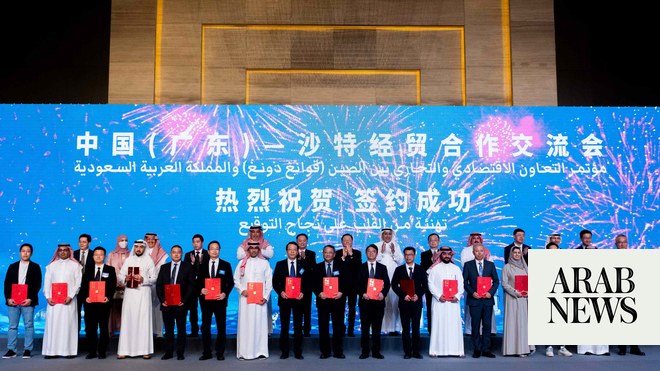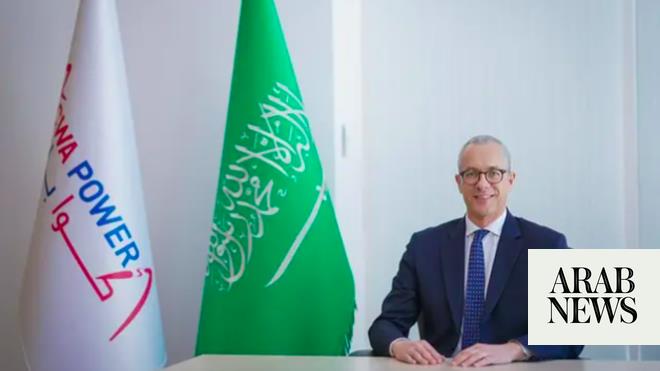
CAIRO: Egypt’s sovereign fund has signed four agreements worth $33 billion in the field of green ammonia with European developers, a cabinet statement said on Sunday.
Prime Minister Mostafa Madbouly observed the signing of these agreements during the joint EU-Egypt Investment Conference in Cairo, marking a significant development in Egypt’s renewable energy landscape.
The signing of these agreements not only underscores Egypt’s commitment to sustainable development but also positions the country as a key player in the global renewable energy market, attracting substantial investments and fostering economic resilience.
The signing ceremony, attended by Egyptian Minister of Electricity and Renewable Energy, Mohammed Shaker Al-Marqabi, and Hala El-Said, minister of planning and economic development, emphasized the collaboration between The Sovereign Fund of Egypt and several European developers.
The first agreement, worth $11 billion, was inked with DAI Infrastructure to establish a green ammonia project at East Port Said.
Ocior Energy secured the second agreement, totaling $4.25 billion, for a green ammonia project at Al-Sokhna Port aimed at European markets.
The third agreement, valued at $3.46 billion, involved a partnership between Arab Energy and Voltalia to establish another green ammonia project at Al-Sokhna Port.
British Petroleum, Masdar, Hassan Allam Utilities, and Infinity Power Holding came together for the fourth agreement, amounting to $14 billion. This collaboration aims to develop a green ammonia project at Al-Sokhna Port.
This came as the EU Commission chief highlighted at the conference in Cairo on June 29 that European firms were expected to sign deals potentially worth over €40 billion ($42.85 billion) with Egyptian partners, as part of a drive to bolster Egypt’s fragile economy.
The announcement by Commission President Ursula von der Leyen of more than 20 new deals or MOUs follows a €7.4 billion EU funding package and an upgraded relationship unveiled in March, as Egypt tried to contain spillover from conflicts in Gaza and Sudan, and European states pushed to prevent migrant flows across the Mediterranean.
Human rights groups have questioned the financing for Egypt, where President Abdel Fattah al-Sisi has overseen a sweeping crackdown on political dissent for more than a decade.
European officials say they want to help Egypt become more resilient by boosting investment and the private sector, after repeated shocks including fallout from the war in Ukraine and COVID-19 exposed underlying economic weaknesses.
“Your stability and your prosperity are essential for an entire region,” von der Leyen said in a speech at the start of the two-day Egypt-EU investment conference.
Sisi said the conference came at “critical time” in light of successive international and regional crises that he said required coordination between Europe and Egypt.
Speakers at the event focused on Egypt’s strategic location between Europe, the Middle East and Africa, and its potential for exporting clean energy and providing inexpensive skilled labor for European companies looking to “nearshore,” or basing operations close to home markets.
About half of the deals being signed were in the energy sector, said Ditte Juul Joergensen, director general of the European Commission’s energy department.
European companies looking to invest were also in sectors including water management, construction, chemicals, shipping and aviation, von der Leyen said.
WINDFALL
Egypt has received a windfall of foreign financing and pledges this year from the UAE, the International Monetary Fund and the World Bank as well as the EU.
That eased a long-running foreign currency crisis and prompted commitments to reforms including a more flexible exchange rate, controls on off-budget spending and the scaling back of the powerful role of the state and the military in the economy.
Such pledges have done little to invigorate the private sector in the past. In a sign of continuing challenges, Egypt is experiencing routine power cuts, and fertilizer and chemical plants have been halting production because of gas shortages.
Businesspeople and diplomats say there is little transparency about how economic strategy is determined. A new government is yet to be appointed nearly four weeks after the resignation of the current cabinet was announced.
Egyptian officials say they are doing their best to manage external pressures and provide for a growing population of 106 million.
Von der Leyen travelled to Cairo as she seeks approval from the European Parliament for a second five-year term as Commission president.
EU leaders agreed to nominate the German on June 27 but the secret ballot vote at the parliament is widely seen as a trickier proposition.












